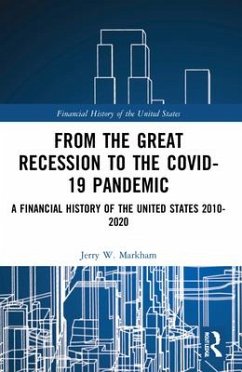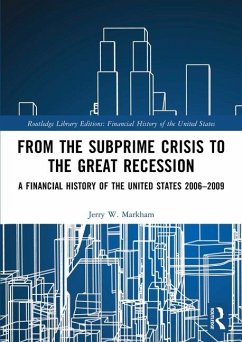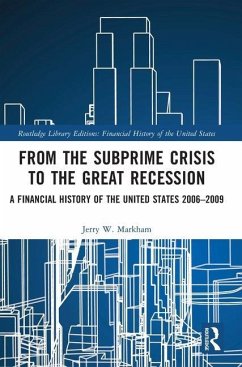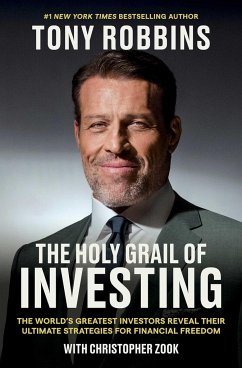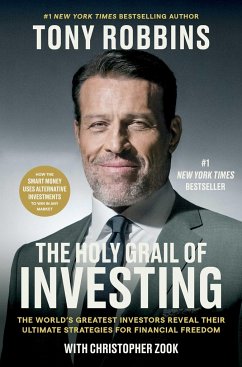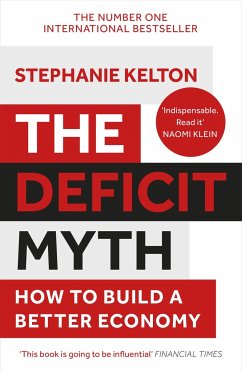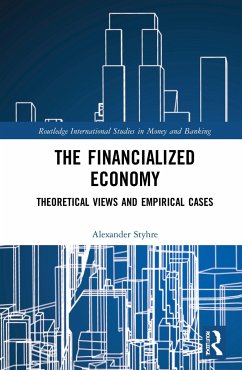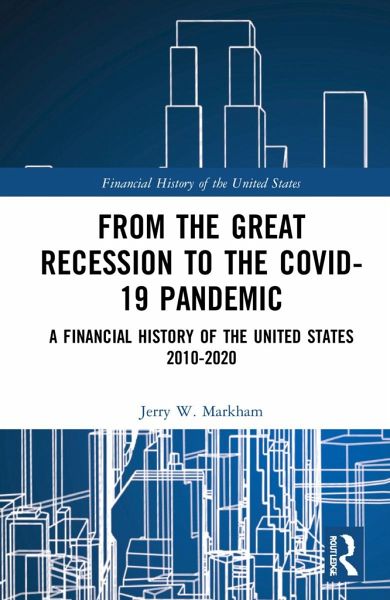
From the Great Recession to the Covid-19 Pandemic
A Financial History of the United States 2010-2020
Versandkostenfrei!
Versandfertig in 6-10 Tagen
170,99 €
inkl. MwSt.
Weitere Ausgaben:

PAYBACK Punkte
85 °P sammeln!
This volume narrates the financial history of the United States during a period of great upheaval in the early part of the 21st century.It is divided into three chronological sections: the first section describes the recovery of financial markets after the Great Recession. It begins with an overview of the state of the economy at the start of the new decade, including some of the political storms affecting the economy and financial markets. It explores the uneven nature of the recovery and volatility in the Treasury during these years. The second section sets forth regulatory responses to the ...
This volume narrates the financial history of the United States during a period of great upheaval in the early part of the 21st century.
It is divided into three chronological sections: the first section describes the recovery of financial markets after the Great Recession. It begins with an overview of the state of the economy at the start of the new decade, including some of the political storms affecting the economy and financial markets. It explores the uneven nature of the recovery and volatility in the Treasury during these years. The second section sets forth regulatory responses to the Financial Crisis of 2008, including the massive fines imposed on large banks by a swarm of regulators. It examines the "too big to jail" prosecution model, cases involving Libor and foreign exchange manipulation and the impact of rogue traders. It also looks at the developments in payment systems, rise of crowdfunding as a source of capital, and high-frequency trading. The third section describes the rules adopted under the Dodd-Frank Act of 2010 that broadly affected financial markets. It also recounts the Trump trade wars and ends with an account of the financial and economic turmoil that occurred during the Covid-19 pandemic in 2020.
The volume will be an essential addition to academic and public libraries with readers drawn from business schools, departments of economics and finance, and historians.
It is divided into three chronological sections: the first section describes the recovery of financial markets after the Great Recession. It begins with an overview of the state of the economy at the start of the new decade, including some of the political storms affecting the economy and financial markets. It explores the uneven nature of the recovery and volatility in the Treasury during these years. The second section sets forth regulatory responses to the Financial Crisis of 2008, including the massive fines imposed on large banks by a swarm of regulators. It examines the "too big to jail" prosecution model, cases involving Libor and foreign exchange manipulation and the impact of rogue traders. It also looks at the developments in payment systems, rise of crowdfunding as a source of capital, and high-frequency trading. The third section describes the rules adopted under the Dodd-Frank Act of 2010 that broadly affected financial markets. It also recounts the Trump trade wars and ends with an account of the financial and economic turmoil that occurred during the Covid-19 pandemic in 2020.
The volume will be an essential addition to academic and public libraries with readers drawn from business schools, departments of economics and finance, and historians.





